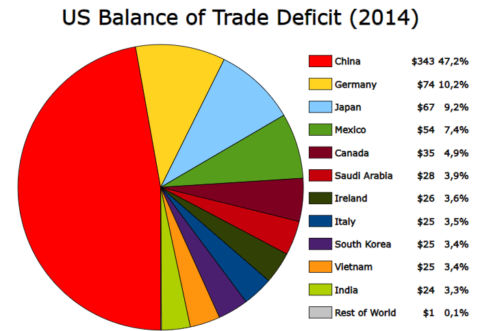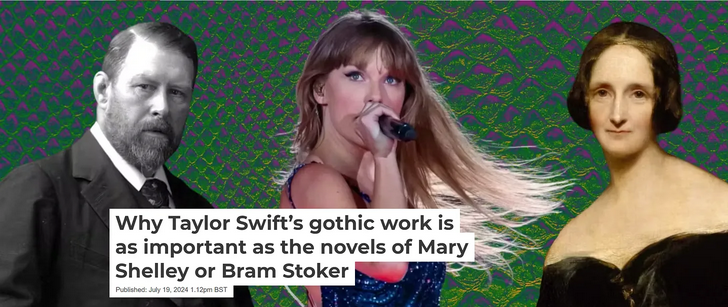At Spiked, Fraser Myers examines what he calls “Kamala’s Ministry of Truth”:

“Kamala Harris” by Gage Skidmore is licensed under CC BY-SA 2.0 .
Did I just fall out of a coconut tree? How else to explain the dizziness so many of us are feeling at the speed of Kamala Harris’s coronation – and at the contortions now being performed to present her as the saviour of the beleaguered Democrats, if not of American democracy itself.
Within 48 hours of Joe Biden’s withdrawal from the US presidential race on Sunday, Vice-President Harris had clinched enough delegates, donors and Democratic power-brokers to ensure her an unchallenged, uncontested path to becoming the Democratic nominee to face Donald Trump this autumn. The last dominos to fall, Barack and Michelle Obama, today offered a full-throated endorsement of Harris, claiming she has the “vision, the character, and the strength that this critical moment demands”.
Since Harris emerged as the frontrunner, the Democrats’ media cheerleaders appear to have been gripped by a nasty bout of Kamalamania. “Kamala Harris will be the 47th President of the United States. Democracy will survive”, declared one Hollywood celeb. She brings the “political power of joy” and “effervescent vibes” to US politics, according to a New York Times columnist. CNN reporters have been gushing over her choice of hoodie and sneakers. As Jenny Holland wrote on spiked earlier this week, the media are eager to present Harris as “Martin Luther King, Ruth Bader Ginsburg, Taylor Swift and Beyoncé, all rolled into one”.
We need to remember who we’re talking about here. The newly anointed Democratic nominee was someone few believed could win the presidency, only a few weeks ago. Indeed, this is widely understood to be behind the Obamas’ hesitancy to back her – and Biden’s own reluctance to hand over the baton to his veep.
It’s not hard to see why. Harris is a politician who exudes negative charisma. She speaks like a cross between a Calfornian self-help guru – her favoured aphorism is “What can be, unburdened by what has been” – and a primary-school teacher who enjoys a few too many glasses of wine at lunchtime. She laughs and cackles at inopportune moments, often to herself. At times, her speech is as incoherent as the mentally frail Joe Biden’s. Who could forget her nonsensical remarks last year at a White House function in which she asked: “You think you just fell out of a coconut tree? You exist in the context of all in which you live and what came before you.” Good luck translating that into English for swing voters in Pennsylvania.
We know that Harris is unpopular with the public, because she has been tested before. Her campaign for the Democratic nomination in 2020 had to be suspended two months before the first primary vote in order to avoid total humiliation at the ballot box. Nationally, Harris was polling at just three per cent. Even in her home state of California, she could only muster eight per cent. Yet now she is about to become the Democratic contender for the White House, with zero input from the public or the party grassroots.
At Founding Questions, Severian responds to a few questions from readers about the Kamala Harris candidacy and what it might indicate about what is happening behind the scenes among the Democratic movers and shakers:
My read is that 2024 is going to be Fortified to hell and back — that’s a certainty — but the extent of the Fortification, and probably its eventual outcome, is tied to the Robber Barons. I agree with William Briggs or whoever it is who suggests a “Thermidorian faction” (I prefer “competent fraction”) of Juggs within the Apparat who are trying desperately to slam on the brakes. IF they can do it — and I’m honestly not sure they can, not at this late date — it’ll be because the Robber Barons put the resources behind it.
I get a sense that there are more than a few Robber Barons making their peace with the BOM. There are, of course, a lot more Robber Barons who hate him and will never reconcile themselves to him … but that doesn’t mean they want Kamala Harris as President. As I wrote in the comments yesterday, if they’d wanted Harris as President, she’d be President by now. Pretty much all the Uniparty’s current problems go away if Biden resigns the Presidency, and if they can force him to drop his reelection bid, they can certainly force his resignation — he’s out in five months no matter what, so why not pass the reins to Harris? She’d be in a far, far stronger position going into 2024 as the incumbent.
No, really. I know that sounds badly wrong to people in contact with Reality, but look at it from the dumbass perspective. The Media has been telling us for four years that the Biden Administration is the greatest ever. Despite your lying eyes, there’s no inflation, no border crisis, no crime problem, and so forth. Harris is going to try to take credit for that on the campaign trail, of course, but it rings a weensy bit hollow coming from a Vice-President. From Madam President xzyrzelf, though? Different story. At least, that’s how the dumbfucks out there in Normie-land would see it, and those are the stupid bastards who will be voting in the fall.
As Vice-President, she gets no credit for the Biden Administration’s accomplishments (I know, I know, stop laughing) … but she gets tarred with all their failures, plus her fuckups as “border czar” (that’s gonna be fun), plus her role in the very obvious and ongoing coverup of Dementia Joe’s galloping dementia.
Make her President, and all that shit goes away. For her first official act, she appoints someone, anyone, as the new “border czar”, and tells that persyn to fall on xzheyr sword. Or, better yet, just never mention the border again. Tell the Media to blast nothing but Historic First Female President!! shit from now until Fortification Day. They will be happy to comply, and it’ll drive most of the bad news off the front page.
This is such a no-brainer that there are only two possible explanations for why they haven’t done it: Either they’re even more terrifyingly stupid than they seem, and so it never occurred to them; or it did occur to them, but Kamala Harris is such a repulsive retard that they can’t risk it — despite it all, Chomo Joe and his galloping dementia are still, somehow, the safer bet.
My guess is that, as Pickle Rick posited the other day, they all give her a pro-forma endorsement, then quietly pull the funding plug. They all pretty much have to endorse her at this point, if for no other reason than the Spiteful Mutants are already going to go apeshit in Chicago; an actual primary fight might burn the city to the ground.
But who knows? These are Juggs. Plus, as I’ve written, this is their moment — every grievance group in AINO will be going for it, as the Uniparty in general, and Harris in particular, will have to promise them the earth and stars to keep them onside. Consider that she has to get both the Bagels and their shekels, and the Pali-bros, in order to make the whole thing go. That would test the political skill of a Metternich, to say nothing of a woman who literally slept her way to the top. She can’t blow ’em all, so she’s going to have to deliver the goods in some other way.
It’ll be a hoot, that’s for sure. Keeping an eye on the funding is probably the best indicator we have.
And in an answer to a different reader:
Welcome to Late Soviet America. Expect a lot more of this, as obvious, ham-handed repression is SOP for flailing, collapsing regimes. We’ve entered the Andropov / Chernenko phase of the festivities, when the phrase “decrepit old man” refers to both the “leader” and his nation. And yeah, I realize that makes Kamala Harris the fake and gay Gorbachev, but that’s actually pretty close — Gorby, too, destroyed what was left of his country because he really believed in all that “openness” and “democracy” bullshit they taught him at the Higher Party Academies. Harris is a far worse moonbat race-baiter than even Bathhouse Barry ever dreamed of being; we’ll get the whole Gorby-Yeltsin-we’re fucked decade in about six weeks once she’s Fortified into office.
And on the power politics uncertainties for both America’s allies and adversaries when it’s not clear exactly who is in charge in Washington DC, the temptation to press a temporary advantage may become overwhelming:
Had Brandon resigned, it wouldn’t be ideal for the Juggs — Harris is still largely holding the bag for Chomo’s failures — but it’d be a hell of a lot better than this, because at least there is someone nominally in charge. Putin or Xi or whoever can pick up the phone and demand to speak to President Harris, and at the very least, he can be assured that President Harris will remember their discussion a few hours later. She might decide to do some incredibly stupid shit, of course — in fact that’s almost guaranteed — but at least Xi, Putin, whoever will know that it’s a bad decision …
… and not just some random drooling lunacy by a guy who thinks it’s 1971 and he’s sticking it to Corn Pop. If anything, the problem just got worse, because they’ve all but openly admitted what everybody already knew: We’re under the Do Long Bridge. There ain’t no fuckin’ CO. But now, instead of just ignoring Harris as per usual when decisions have to be made by … well, by whomever, now they pretty much have to loop her stupid ass in, even though she has no official power to make anything happen. They’ve added yet another layer of retarded dysfunction to an already FUBAR process.
And at The Free Press, Suzy Weiss explains a few Kamalamemes that her campaign has decided to “lean into” (note that the rest is behind a paywall):
→ Kamala is brat, Biden is boots, please God send the asteroid today: I’ve learned the hard way — and by that I mean my parents once asked me what “WAP” meant — that certain things should never be explained with words. It’s not that it’s impossible, it’s just that it embarrasses everyone.
That’s how I feel about the whole Kamala-is-brat thing. Brat is a good album about partying and getting older and having anxiety that was released earlier this summer by Charli XCX. But it’s since been adopted by too-online and very young people as a personality, and by Kamala Harris’s campaign as a mode to relate to those very young people. Her campaign is leaning into the whole green look of the album to try and win over Gen Z, and generally recasting her many viral moments—”You think you just fell out of a coconut tree?” “I love Venn diagrams” “What can be, unburdened by what has been” — as calling cards. It’s like when Hillary went on Broad City, only this time more cringe.
And now we have Jake Tapper and Greg Gutfeld grappling with the “essence” and the “aesthetic” and overall vibe of brat girl summer. We used to be a serious country. We used to make things.
Here’s the thing about Kamla: she is hilarious and campy, but unintentionally so. Any goodwill that her goofy dances or weird turns of phrase garner should be considered bonus points, not game play. Was there ever any doubt that Fire Island would go blue? We’ve been debating whether Kamala’s meme campaign is a good move for her prospects in the Free Press Slack, and here I’ll borrow from my older and wiser colleague Peter Savodnik: “There is nothing more pathetic than an older person who cares what a younger person thinks is cool”.
→ Boomer behavior: While Kamala’s campaign is being run by a 24-year-old twink with an Adderall prescription, J.D. Vance’s speechwriter seems to be a drunk boomer who just got kicked out of a 7-Eleven. Vance, appearing this week at a rally in Middletown, Ohio, riffed, “Democrats say that it is racist to believe … well, they say it’s racist to do anything. I had a Diet Mountain Dew yesterday and one today, and I’m sure they’re going to call that racist too.” Crickets. Horror. Major “Thanks, Obama” energy. There was also a bit on fried bologna sandwiches and a lot of “lemme tell you another story”. The guy is 39 but sounds older than Biden.
Fresher, 35-to-60-year-old blood is exactly what we’ve been begging for. Let the boomers boom, let the Zoomers zoom. Kamala and J.D.: act your age.













